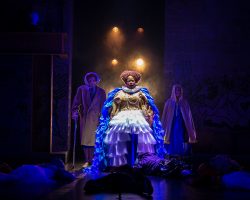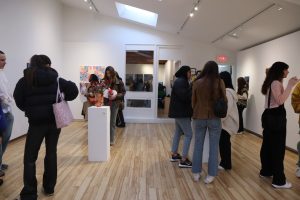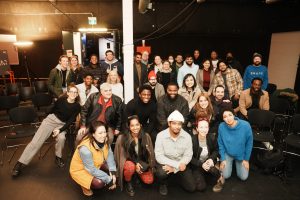Eric Armstrong and York faculty create Open Educational Resources, advancing UN SDGs
Faculty develop innovative Open Educational Resources (OER) that are aligned with the United Nations Sustainable Development Goals (UN SDGs) and reveal the positive impact on teaching and learning.
Faculty members who are engaged in the process of creating OER reveal the impact this has on the teaching and learning experience, both in the classroom and beyond. They note that the interactive resources provide a tremendous opportunity for both instructors and students to learn and adapt as the world becomes increasingly more digitized.
Eric Armstrong, chair and associate professor, Department of Theatre, School of the Arts, Media, Performance & Design (AMPD), also touches on the global reach OER can have on communities. His open textbook, Lexical Sets for Actors, is internationally accessible and has garnered interest from the United Kingdom (U.K.), fulfilling a need they have for accent training.
“There are lots of resources to teach people accents and phonetics (the sounds of language) but the lexical resources available are outdated, buried in a philosophy and pedagogy that’s often biased towards a standard speech,” he explains.
Armstrong says he is open to working with others to make variations of the book for different audiences and needs. He has even received feedback from his U.K. partner on changes they would like to see. Because Armstrong’s OER is licensed with a Creative Commons Attribution-ShareAlike license, his OER allows for other instructors and educational institutions to remix and adapt the OER to tailor it to their local teaching context.
He approached the creation of the textbook learner with variability in mind. There are sample sentences for actors to practice their accents, which employs a creative writing component. It was also written with accessibility and many demographics in mind, including BIPOC, LGBTQ+ and non-binary communities. The OER’s inclusivity impacts areas outside the university as well.
“I’m also using the book with colleagues who are learning to be this type of teacher or trainer,” he adds. “Not working just in university settings but with professional actors, coaching them for roles. This resource stretches beyond the walls of academia.”
In looking towards the future of OER, Armstrong says, “The OER we are creating now will serve as models for others to get involved and to show that it can be done. People start to think differently about the nature of teaching, the nature of resources and about the nature of our responsibility to create a different kind of learning experience.”
To read more, click here.


